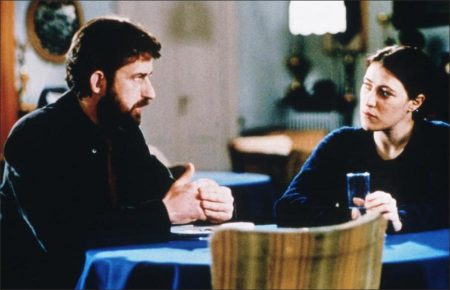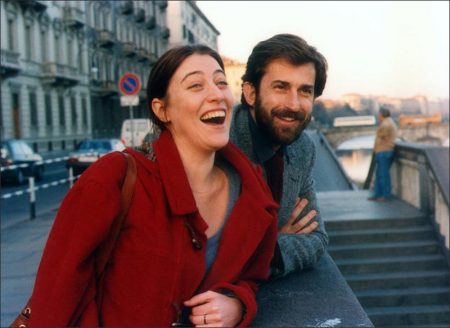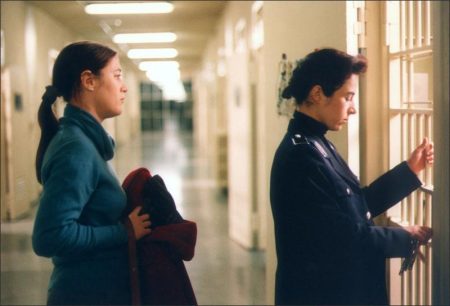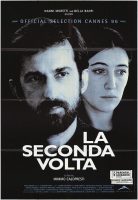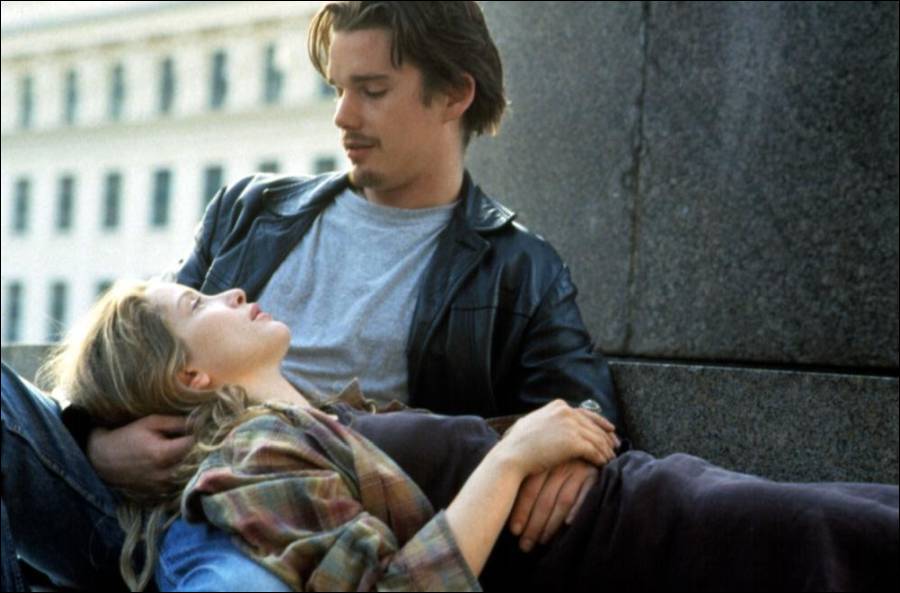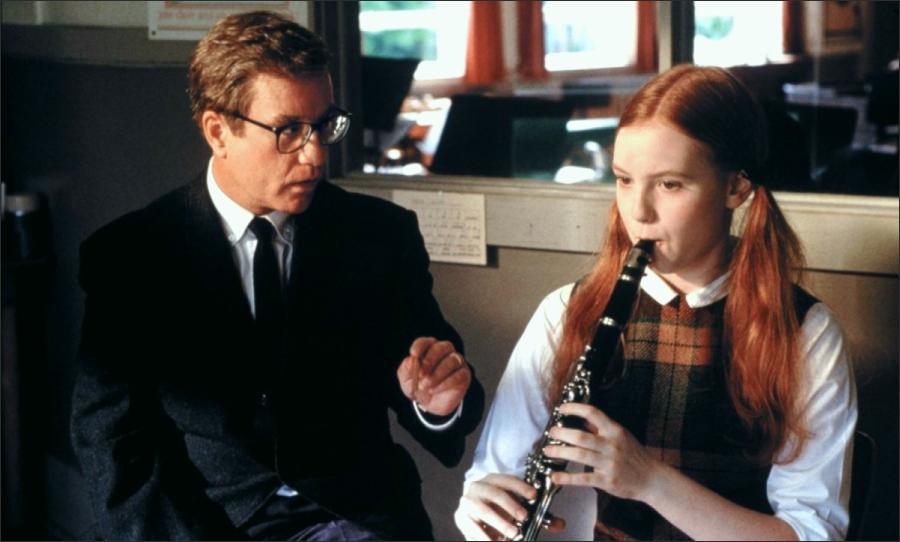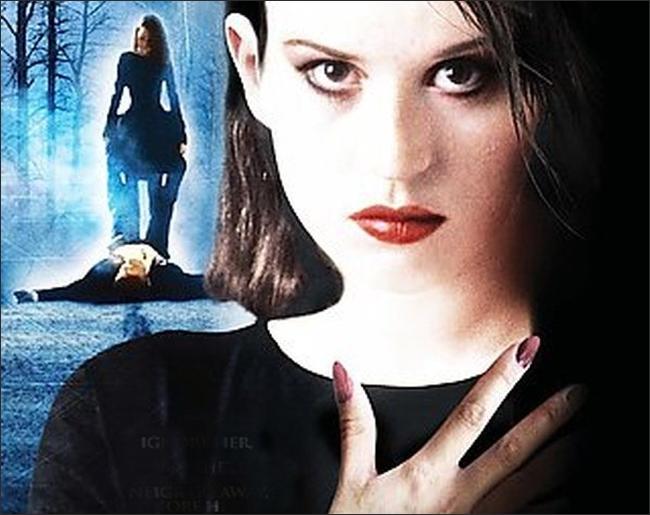La Seconda Volta
The Second Time movie storyline. Professor Alberto Sajevo sees a woman walking in downtown Turin and starts following her for days; he finally meets her and they start talking, but they both give fake names. She is not the common secretary she pretends to be, but ex-terrorist Lisa Venturi who’s currently in jail for having severely wounded Sajevo fifteen years before; he will finally and dramatically reveal himself.
The Second Time (Italian: La seconda volta) is a 1995 Italian drama film directed by Mimmo Calopresti and starring Francesca Antonelli, Valeria Bruni Tedeschi, Simona Caramelli, Marina Confalone, Roberto De Francesco, Orsetta De Rossi, Valeria Milillo. It was entered into the 1996 Cannes Film Festival.
Film Review for The Second Time
The third debuting director to come from the Sacher Film fold, former documaker Calopresti follows Carlo Mazzacurati and Daniele Luchetti, both of whom went on to establish successful feature filmmaking careers.
His prize-winning script, co-written with Heidrun Schleef and Francesco Bruni , underwent minor changes after Moretti signed on, notably the lowering of the ages of both protagonists. Many familiar traits from Moretti’s screen persona in his own films are incorporated in the service of his somewhat self-righteous character without transforming the story into merely a Moretti vehicle.
The drama develops from a casual encounter during which Alberto Sajevo (Moretti), a university professor in Turin, spots Lisa Venturi (Valeria Bruni Tedeschi), the convicted terrorist who attempted to kill him 12 years earlier. With the majority of her 30-year sentence still to be served, she is out on a day-release program enabling her to hold down an office job.
Having blocked that painful episode from her past out of her memory, Lisa fails to recognize her intended victim. But with the bullet still lodged in his head, Alberto has been unable to forget. Incensed to see his attacker out in the world as if nothing had happened, Alberto begins placing himself in her path.
Mistakenly believing he is merely a stranger attempting to romance her, she nervously invents a normal life for herself, which he pretends to swallow. When Alberto confronts her with the truth, Lisa backs off, giving up the privilege of semi-liberty for fear of further traumatic invasions into her life. But the nature of their bond has changed from that of victim and executioner to something more indefinable, compelling them both to make repeated attempts at communication.
The virtual impossibility of rational dialogue between the two factions is the essence of the film. Alberto remains resentful of a movement he sees as pointless and misguided, which operated by the credo “Strike at one to educate one hundred,” but ultimately educated no one. Lisa maintains that the values of the terrorist years are no longer relevant and, hence, defy understanding. That this sensitive ideological gap is examined without even a glimmer of didacticism is a credit to the complex script.
Characters are etched with subtlety and authenticity, with Calopresti’s experience in documenting aspects of Italy and Italians evident in his ability to place them swiftly in believable environments.
While Moretti’s main strength has never been as an actor, he fully conveys the anger of a man who feels his life has been ruined for no just cause. Bruni Tedeschi is exceptional, her melancholy intensity allowing a glimpse of infinite conflict, resignation and self-doubt, burdened by actions whose consequences she may have been too young to fully consider. Her character’s nervous behavior around Alberto, especially prior to the revelation of his real identity, contributes to an acutely felt portrait of a person cut off from the outside world.
The texture of the prison life Lisa returns to each evening is revealed without false dramatics. The hope of some kind of emotional escape is quietly expressed by her cellmate (Simona Caramelli), who clutches at the possibility of a relationship with a married man from her workplace. Other players are similarly incisive, especially Marina Confalone as a supportive colleague at Lisa’s office.
Alessandro Pesci’s crisp lensing balances the somber, northern European light of the Turin locations with the warm colors of the interiors. The restrained, sorrowful melodies of Franco Piersanti’s score provide a rich complement to the drama.
In Italian
Torino. Il professor Sajevo pedina una ragazza, Lisa. L’abborda in un ristorante e si fa riconoscere: “Sono quello cui hai sparato, mi sono salvato per un pelo”. Lisa, ex brigatista, lavora e la sera rientra in prigione, è in semilibertà. Sajevo vorrebbe una punizione più severa, lo dice anche al giudice. I due alla fine si incontrano e si spiegano.
Dei professori in “quegli” anni si diceva: “Colpirne uno per educarne cento”. Moretti chiede: “Avete colpito me, dove sono i cento che avete educato?”. C’è un confronto dialettico, in più ci sono le emozioni. Sostanzialmente “quella” stagione non è servita a niente. Ci ha rimesso gente che non c’entrava, come Sajevo. La morale è: è stata un’esperienza, ricordiamola, ma voltiamo pagina. Un film italiano sopra la media, che è quasi sempre bassa.
Storia di indulgenza: indulgenza delle vittime, indulgenza speculare delle due critiche politiche opposte. Moretti, uomo di sinistra, non ha goduto invece della generale indulgenza della critica, che lo ha accusato di tradimento. Forse è per questo che il film si solleva dalla media.
The Second Time – La Seconda Volta (1995)
Directed by: Mimmo Calopresti
Starring: Francesca Antonelli, Valeria Bruni Tedeschi, Simona Caramelli, Marina Confalone, Roberto De Francesco, Orsetta De Rossi, Valeria Milillo
Screenplay by: Mimmo Calopresti, Francesco Bruni, Heidrun Schleef
Production Design by: Giuseppe M. Gaudino
Cinematography by: Alessandro Pesci
Film Editing by: Claudio Cormio
Art Department: Roberto Giacomelli
Music by: Franco Piersanti
Distributed by: The Sales Company
Release Date: October 26, 1995
Views: 114
